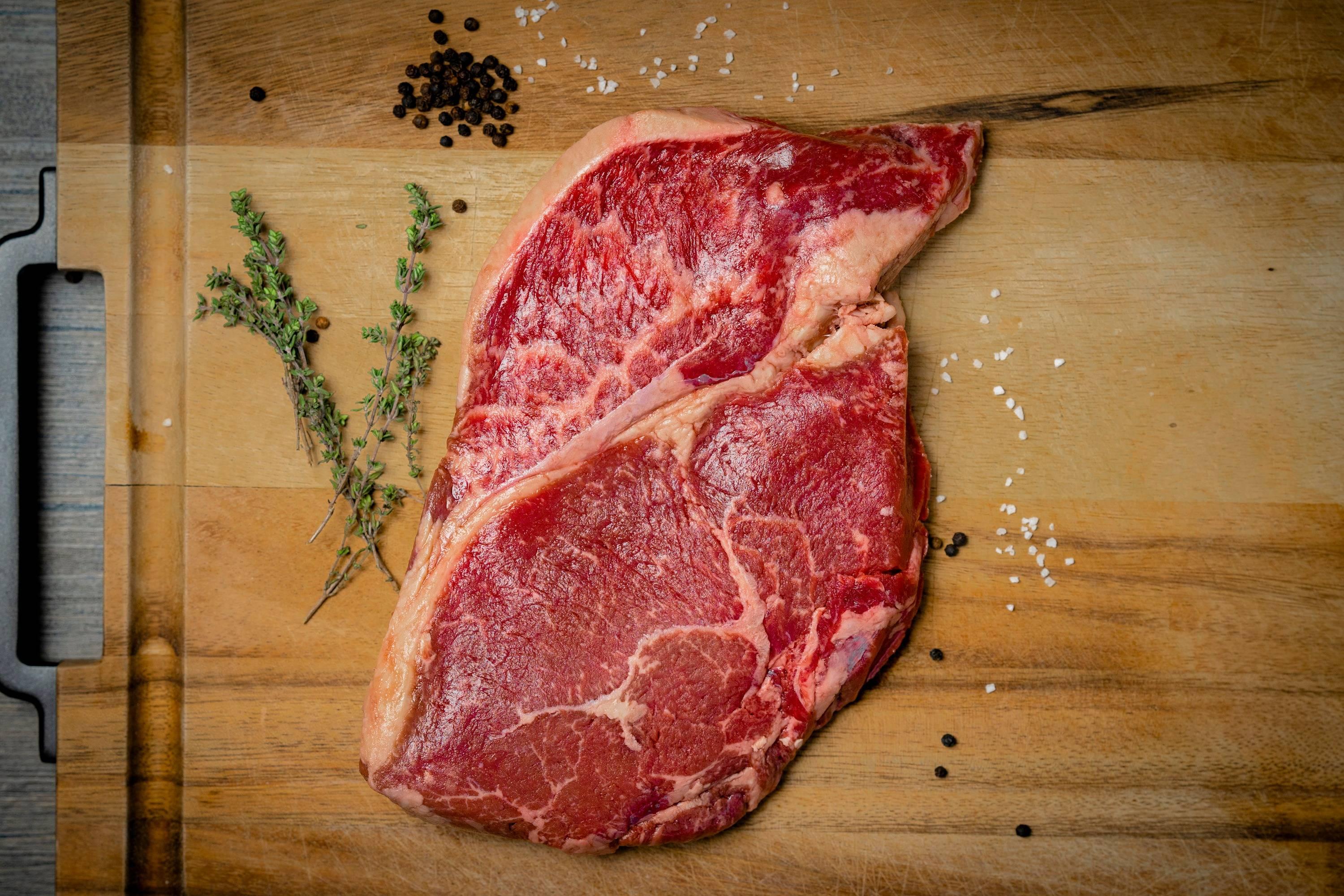Wagyu cattle produce exceptionally high-quality beef that is best known for its abundant marbling—which in turn leads to its flavorful taste. The fatty acid composition of this marbling also plays a central role in the quality of Wagyu, as Wagyu’s umami flavor and unique tenderness come from the high percentage of monounsaturated fatty acids in the cattle’s tissue. Aside from the added flavor these acids help provide, they also contribute to the beef’s significant health benefits.
Wagyu is the healthiest beef that can be produced. Both the high quality lifestyle of Wagyu and their predisposed genetics help play a major part in that, but the real question is: What exactly is in Wagyu that is so good for you?
Researchers have concluded that a diet including monounsaturated fatty acids (MUFAs) is better for your heart than alternative diets with lean products. Wagyu just so happens to have a 300% higher monounsaturated to saturated fat ratio than other beef. But even that saturated fat is different from the saturated fat found in other types of beef in that it has minimal impact on raising cholesterol levels.
These particular proportions of MUFAs in Wagyu beef are due to higher concentrations of oleic acid, which is also good for your heart.
MUFAs are heart-healthy dietary fat because they can lower low-density lipoprotein cholesterol while increasing high-density lipoprotein cholesterol. To frame it outside of just beef, Wagyu’s health benefits are often compared to that of salmon and olive oil. However, Wagyu beef actually has the lowest cholesterol levels of all meats—lower than fish or chicken—and is even suspected to have anti-carcinogenic properties.
Another valuable part of Wagyu beef is that it is amazingly high in Omega-3 and Omega-6 content. Both Omega-3 and Omega-6 are polyunsaturated fatty acids (PUFAs) that reside within the unsaturated fats and work together to prevent heart disease. Simply put, all PUFAs are “good fats.”
The intake of grass in Wagyu cattle’s diet influences this composition of decreased saturated fatty acids and increase in PUFAs. The more grass in the diet, the better and the higher an increase in both PUFAs and conjugated linoleic acid concentrations (CLA). CLA is correlated to the level of fatness in Wagyu beef, which features the highest volume of CLA per gram of any food.
Grass-feeding also drives up the cattle’s Vitamin E content, which improves the overall quality of the meat from everything from color to shelf life.
All of these fats and acids that make up Wagyu aid in creating the tenderness, flavor, and—best of all—health benefits that this special beef has to offer.


Share:
The History of Beef Wellington
Wagyu in America